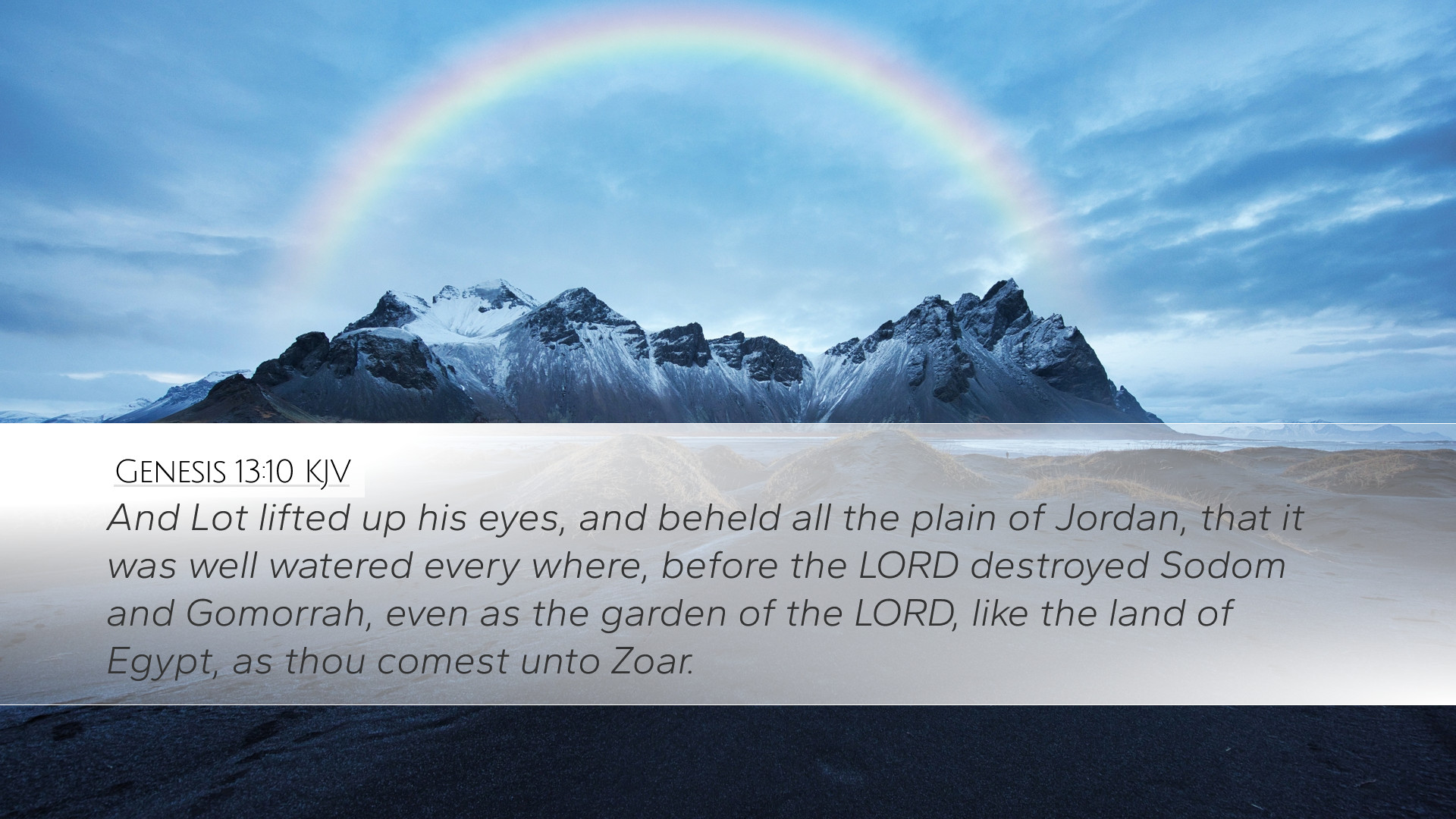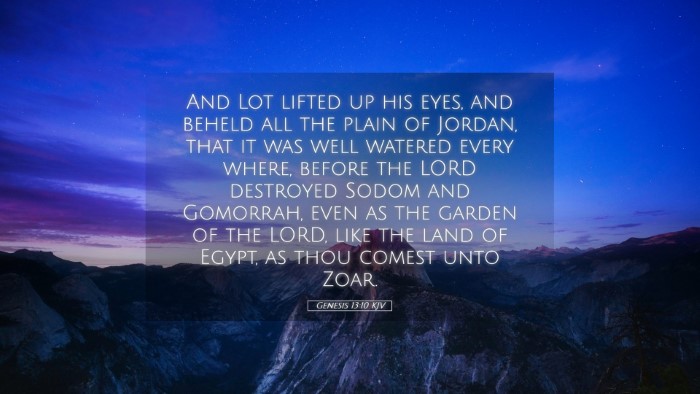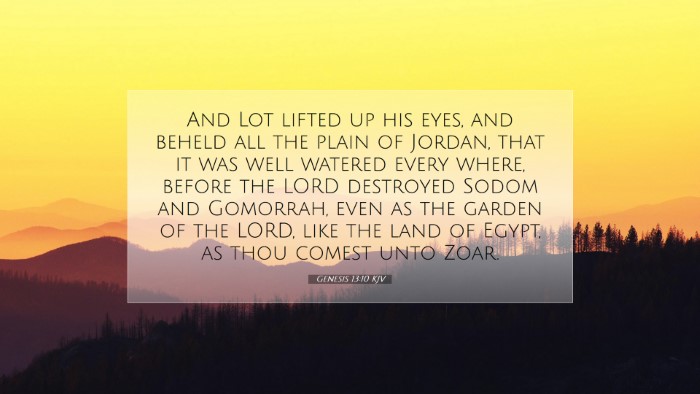Commentary on Genesis 13:10
Verse: "And Lot lifted up his eyes, and beheld all the plain of Jordan, that it was well watered everywhere, before the Lord destroyed Sodom and Gomorrah, even as the garden of the Lord, like the land of Egypt, as thou comest unto Zoar." (Genesis 13:10)
Contextual Analysis
This verse occurs within a pivotal moment of separation between Abram and Lot. Both had experienced increased wealth and flocks, leading to strife between their herdsmen. The call for separation not only addresses their physical needs but also anticipates a spiritual journey for Abram aligned with God’s promises.
Interpretation and Insights
The Physical Landscape
Lot’s decision to choose the well-watered plains reflects a focus on immediate material prosperity. Matthew Henry notes how Lot "lifted up his eyes," symbolizing a desire for worldly abundance devoid of spiritual insight. This reflects a critical theme: the tension between the visible and the invisible, the temporal and the eternal.
Comparison with the Garden of the Lord
Here, the "plain of Jordan" is compared to "the garden of the Lord," indicating not just physical beauty but also a spiritual significance that is often overlooked. Albert Barnes emphasizes that this imagery invokes the lushness of Eden, suggesting the allure of riches can sometimes cloak deeper spiritual truths.
Sodom and Gomorrah: A Foreshadowing
There is a poignant juxtaposition at play, as the text reminds us that this land, later identified with wickedness and destruction, was once appealing. Adam Clarke warns that the choice of land by Lot leads to a gradual moral decline, which ultimately resonates with a greater narrative of divine judgment. The mention of future destruction serves as a cautionary tale, illustrating how short-term vision can lead to long-term consequences.
Theological Implications
The choice Lot made serves as a microcosm of humanity's struggle with priorities. Lot represents those who prioritize material wealth and human wisdom over divine guidance.
- Spiritual Blindness: Lot’s decision demonstrated spiritual blindness. His choice was based on surface-level evaluation, failing to consider the moral and spiritual implications of dwelling in a place marked by sin.
- Impact on Future Generations: Lot’s choice would not only affect him but also his family and descendants. The consequences of his decisions had ripple effects that continue throughout biblical history.
- Contrast with Abraham: In contrast, Abram’s faith and trust in God’s promise culminate in eventual blessing, illustrating a key biblical principle: true wealth is found in obedience and relationship with God.
Practical Applications for Today
This narrative provides substantial lessons for contemporary believers:
- Evaluate Choices Spiritually: Believers are called to make choices based on spiritual understanding. Regular prayer and seeking God’s wisdom are paramount.
- The Allure of Materialism: Just as Lot was drawn to the well-watered plains, modern Christians may be tempted by the allure of materialism. This passage urges a consideration of the spiritual ramifications of our financial and social choices.
- Understanding Consequences: Encourages mindfulness regarding the long-term consequences of decisions, particularly those that may seem beneficial in the short term.
- Community Impact: The choices we make not only affect our lives but also the community around us. As church leaders and congregants, there is a collective responsibility to guide others in pursuing paths that honor God.
Conclusion
Genesis 13:10 encapsulates profound themes of choice, foresight, and spiritual awareness. Lot’s choice serves as a stark reminder of the tension between worldly allure and spiritual faithfulness. The reflection upon both the immediate beauty and the eventual destruction highlights the need for deeper discernment in our decision-making processes as individuals and communities committed to God’s calling.


